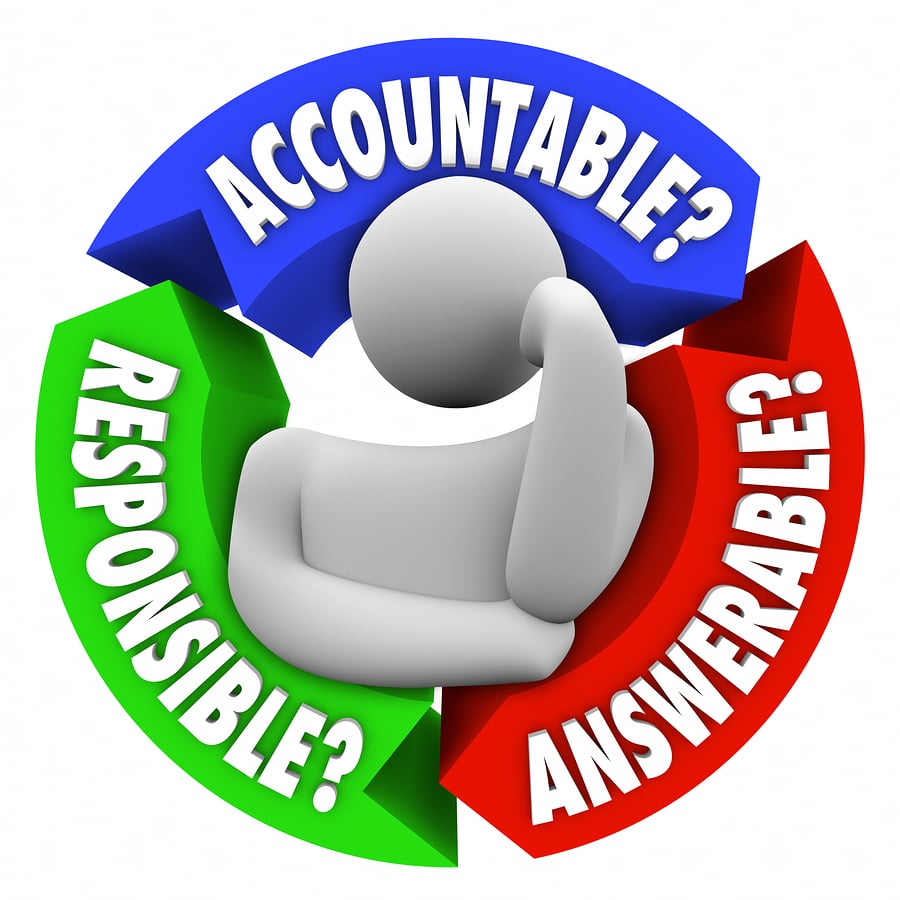What Does it Mean to Be Accountable?

Several years ago, I worked as a consultant for a Fortune 500 high-tech company. I was part of a team of consultants hired to help this company make significant changes. Specifically, I was hired to assist with the human side of change, which meant building strategies to ensure buy-in and adoption. I was part of a team of other successful consultants. I remember one particular moment when our team gave each other feedback at the end of the project. One colleague commented that I was accountable. I remember being very flattered and validated. Yet what did this mean?
Accountability Starts With You
To me, accountability starts with oneself. It is a form of self-integrity. When I say I will do something, I am committing to myself and someone else. If I don't follow through, I am out of integrity, not only with the other person but also with myself. I am violating the deeply held value that I honor my commitments.
Early in my career, I participated in several personal development courses. Ironically, the focus of the course was the notion of being responsible and keeping commitments. I remember one occasion when a man asked to borrow some money from me, probably for a meal. It was a small amount, and still, I was at the beginning of my career and not making a lot of money. I loaned him the money and requested that he pay me back. The course ended, and he never mentioned it or paid me back. I still remember being angry at myself for loaning the money and trusting that others were "getting" the lesson.
I have, of course, not followed through on every commitment I have made, and to this day get a nagging feeling in my stomach when I realize I have dropped the ball, especially when it impacts others. For example, I teach graduate-level courses in leadership, and many of the courses are online. At the beginning of each term, I prepare the course website. There are dozens of settings, and it is easy to miss something. More than once, I have overlooked a date or neglected something that impacts our students, who are all very busy working adults. I always get a pit in my stomach when a mistake is pointed out, and if my mistake impacts the students, I give them credit or points or extend a deadline.
Accountability and Ownership
In the business world, being accountable also starts with oneself and signifies a sense of ownership and a willingness to take responsibility when things go wrong. In my executive coaching work, the best leaders are willing to admit and take ownership of their mistakes. That is a sign of accountability. I have also occasionally worked with leaders whose lack of accountability negatively impacts the deliverables of their team. If they are willing to acknowledge that they have not been accountable, we can develop a strategy to ensure that they are. In rare cases, I have worked with leaders who had many reasons and excuses, and their employment was terminated.
Culture of Accountability
Organizations can consciously create a culture of accountability. First, managers are expected to provide clear expectations, give ongoing positive and constructive feedback, and have consequences when expectations are not met. In the best teams, team members give each other ongoing positive and constructive feedback, and all subscribe to the belief that the only way the team wins is if everyone wins. There is a sense of shared ownership.
Accountability and You
What are your thoughts about accountability? What does it mean to you? How do you respond when you don't keep a commitment? When others don't keep their commitments to you or the team?
